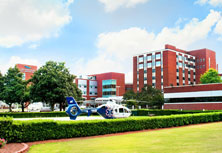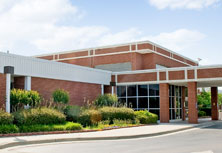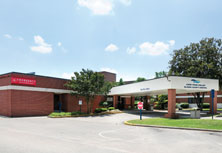Smell and Taste
Problems with these senses have a big impact on our lives. Smell and taste contribute to our enjoyment of life by stimulating a desire to eat which not only nourishes our bodies, but also enhances our social activities. When smell and taste become impaired, we eat poorly, socialize less, and feel worse. Smell and taste warn us of dangers, such as fire, poisonous fumes, and spoiled food. Loss of the sense of smell may indicate sinus disease, growths in the nasal passages, or, at times, brain tumors.
How Do Smell and Taste Work?
Smell and taste belong to our chemical sensing system (chemosensation). The complicated process of smelling and tasting begins when molecules released by the substances around us stimulate special nerve cells in the nose, mouth, or throat. These cells transmit messages to the brain, where specific smells or tastes are identified.
- Olfactory (smell nerve) cells are stimulated by the odors around us, the fragrance from a rose, the smell of bread baking. These nerve cells are found in a tiny patch of tissue high up in the nose, and they connect directly to the brain.
- Gustatory (taste nerve) cells are clustered in the taste buds of the mouth and throat. They react to food or drink mixed with saliva. Many of the small bumps that can be seen on the tongue contain taste buds. These surface cells send taste information to nearby nerve fibers, which send messages to the brain.
Our body’s ability to sense chemicals is another chemosensory mechanism that contributes to our senses of smell and taste. In this system, thousands of free nerve endings especially on the moist surfaces of the eyes, nose, mouth, and throat identify sensations like the sting of ammonia, the coolness of menthol, and the heat of chili peppers.
What Causes Loss of Smell and Taste?
Scientists have found that the sense of smell is most accurate between the ages of 30 and 60 years. It begins to decline after age 60, and a large proportion of elderly persons lose their smelling ability. Women of all ages are generally more accurate than men in identifying odors.
Some people are born with a poor sense of smell or taste. Upper respiratory infections are blamed for some losses, and injury to the head can also cause smell or taste problems.
Loss of smell and taste may result from polyps in the nasal or sinus cavities, hormonal disturbances, or dental problems. They can also be caused by prolonged exposure to certain chemicals such as insecticides, and by some medicines.
Tobacco smoking is the most concentrated form of pollution that most people are exposed to. It impairs the ability to identify odors and diminishes the sense of taste. Quitting smoking improves the smell function.
Radiation therapy patients with cancers of the head and neck often complain of lost smell and taste. These senses can also be lost in the course of some diseases of the nervous system.
Can These Disorders Be Treated?
Sometimes certain medications are the cause of smell or taste disorders, and improvement occurs when that medicine is stopped or changed. Although certain medications can cause chemosensory problems, others particularly anti-allergy drugs seem to improve the senses of taste and smell. Some patients, notably those with serious respiratory infections or seasonal allergies, regain their smell or taste simply by waiting for their illness to run its course. In many cases, nasal obstructions, such as polyps, can be removed to restore airflow to the receptor area and can correct the loss of smell and taste. Occasionally, chemosenses return to normal just as spontaneously as they disappeared.











